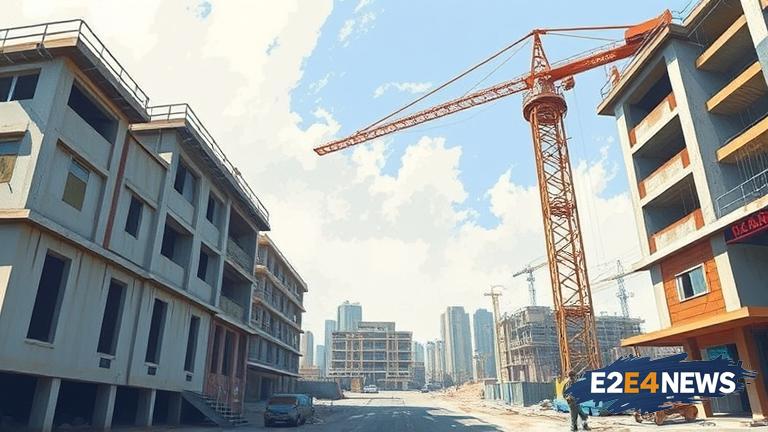Pakistan’s construction sector has been a significant contributor to the country’s economy, providing employment opportunities and driving growth. However, in recent years, the sector has been facing numerous challenges, resulting in a decline in its growth and development. One of the primary reasons for this decline is the lack of effective governance and regulatory frameworks. The sector is plagued by corruption, red tape, and bureaucratic hurdles, making it difficult for developers and contractors to operate efficiently. Furthermore, the sector is heavily reliant on government funding, which has been inconsistent and often delayed. This has resulted in a lack of confidence among investors, leading to a decline in private sector investment. Additionally, the sector is facing a severe shortage of skilled labor, which has led to an increase in construction costs and a decline in the quality of work. The government’s focus on large-scale infrastructure projects has also diverted resources away from smaller, more sustainable development projects. The construction sector is also heavily dependent on imported materials, which has resulted in a significant outflow of foreign exchange. The recent devaluation of the Pakistani rupee has further exacerbated this issue, making it even more challenging for developers to import necessary materials. The sector is also facing significant environmental challenges, including the depletion of natural resources and the lack of effective waste management systems. The government has introduced various initiatives to promote the construction sector, including the introduction of tax incentives and subsidies. However, these initiatives have had limited success, and the sector continues to face significant challenges. The construction sector is also facing significant competition from other sectors, including the textile and manufacturing sectors. The government’s focus on these sectors has resulted in a decline in investment in the construction sector. The sector is also facing significant challenges in terms of access to finance, with many developers and contractors struggling to secure funding. The government has introduced various financing schemes, including the introduction of Islamic financing options. However, these schemes have had limited success, and the sector continues to face significant challenges. The construction sector is also facing significant challenges in terms of technology adoption, with many developers and contractors struggling to adopt new technologies. The government has introduced various initiatives to promote technology adoption, including the introduction of training programs and subsidies. However, these initiatives have had limited success, and the sector continues to face significant challenges. The construction sector is also facing significant challenges in terms of innovation, with many developers and contractors struggling to innovate and adapt to changing market conditions. The government has introduced various initiatives to promote innovation, including the introduction of research and development grants. However, these initiatives have had limited success, and the sector continues to face significant challenges. The construction sector is also facing significant challenges in terms of sustainability, with many developers and contractors struggling to adopt sustainable practices. The government has introduced various initiatives to promote sustainability, including the introduction of green building codes and subsidies. However, these initiatives have had limited success, and the sector continues to face significant challenges. The construction sector is also facing significant challenges in terms of safety, with many developers and contractors struggling to ensure safe working conditions. The government has introduced various initiatives to promote safety, including the introduction of safety training programs and subsidies. However, these initiatives have had limited success, and the sector continues to face significant challenges. The construction sector is also facing significant challenges in terms of quality, with many developers and contractors struggling to ensure high-quality work. The government has introduced various initiatives to promote quality, including the introduction of quality control measures and subsidies. However, these initiatives have had limited success, and the sector continues to face significant challenges. In conclusion, Pakistan’s construction sector is facing significant challenges, resulting in a decline in growth and development. The sector requires effective governance, regulatory frameworks, and investment to promote growth and development. The government must also address the sector’s environmental, social, and economic challenges to ensure sustainable development.
